Department of Computer Science
Professor Jonas about the Cyber Security Learning Lab
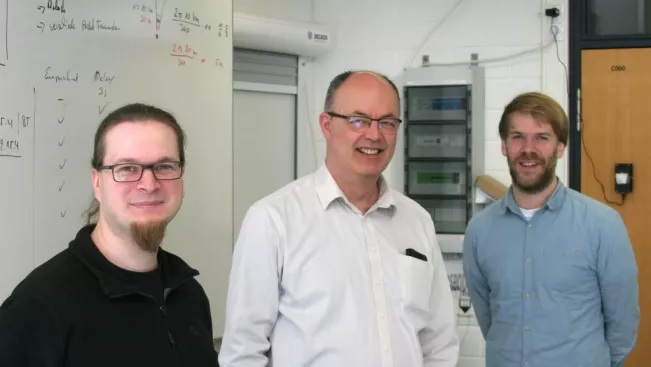
Our increasingly digitalised society is wide open to cyber attacks, whereby the relevant attack and defence technologies are both undergoing continuous development. The Fraunhofer Institute for Communication, Information Processing and Ergonomics (FKIE) and H-BRS established the “High Security and Emergency Response” Cyber Security Learning Lab at the Sankt Augustin Campus in 2017, where they offer comprehensive advanced training opportunities for IT specialists from public institutions as well as operators of critical infrastructures.
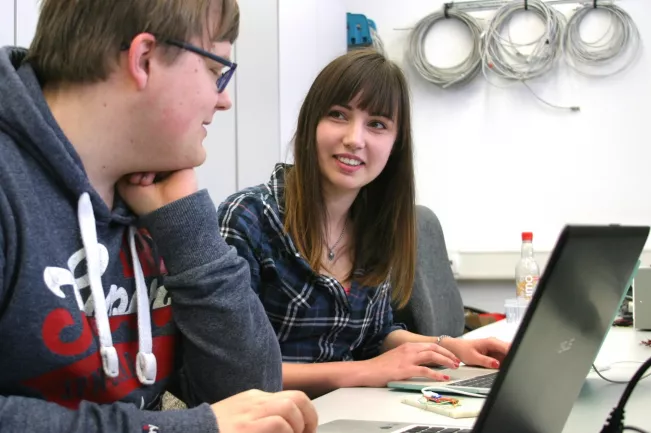
H-BRS: How many people work at the Cyber Security Learning Lab?
Professor Dr. Karl Jonas: Three research associates and four research assistants are funded at the university via the project itself. However, the very reason we're participating in the project is that we're already active in the field of Information Technology (IT), and there are two more research associates who work with me and another with Professor Norbert Jung. These are integrated in terms of their subject focus, but aren't funded via the project. As I said, we’re already working on cyber security issues here anyway.
H-BRS: How do you integrate the Cyber Security Learning Lab into the degree course?
Jonas: In two ways: we want to make the public commercial training courses we offer at the learning lab available to our own university students, especially those who aren't studying IT security, in the form of extracurricular workshops. We also cover the relevant issues, or more specifically, our research findings in our existing courses.
But, in addition to this workshop component, the Cyber Security Teaching Lab also, importantly, provides resources for research and development, which was the main reason for our involvement. The research findings should inform both our teaching and research activities. And vice-versa, our teaching lab will also benefit from the results of projects funded by other backers.

H-BRS: At which students are the internal workshops at H-BRS aimed?
Jonas: Well, naturally at those students studying information technology in the first instance. But, we'd also offer the workshops to all our students, provided they have the necessary wherewithal. We're planning a series of training courses at different levels, so there's a basic course that almost anyone could sign up for. These courses will then be offered in a similar format as student workshops. Even economists, for example, could take part in them.
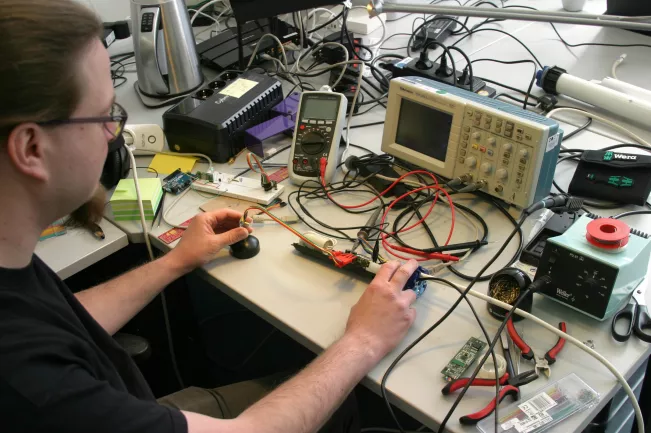
H-BRS: When was the Cyber Security Learning Lab established? Till recently, the relevant training courses had been aimed more at IT security novices - are you now setting your sights higher?
Jonas: The teaching lab was inaugurated at the end of last year. By this autumn, we’ll already be in a position to offer intermediate courses, whereby the participants would already need to be familiar with the basics.
H-BRS: When do you believe you’ll achieve a state-of-the-art level in terms of IT security?
Jonas: 2019. To participate in seminars of this type, you'd already need to have completed either a master's degree in IT or a bachelor's degree with an IT-security major.
Jannis Konrad: So, the target group is more the developers rather than experts in forensic IT or others?
Jonas: It varies: the Fraunhofer FKIE's key target group explicitly includes forensic IT specialists among others, whereas the H-BRS’s current focus is on small and medium-sized businesses as well as developers.
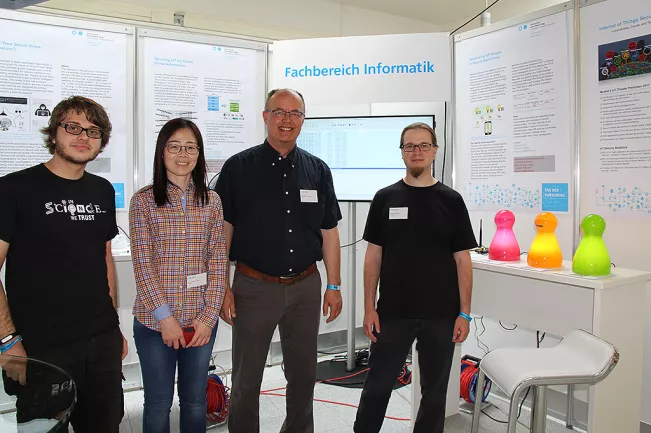
H-BRS: How would you actually define the term “cyber security”? Is the word "cyber" included just because it sounds a bit fancy, or does it involve virtual or augmented reality?
Jonas: Well, no - that's not what it means: we could have also referred to it simply as IT security. Right now, we're mainly focused on the technical aspects of security. We opted for the word “cyber” to broaden the brief; to indicate that it's not only about the technology per se, but also involves raising awareness about the fact that security issues of this kind are even relevant. When we offer courses aimed, for example, at the management level, it's not about teaching the participants how things like the Advanced Encryption Standard (AES) work or how to implement a particular algorithm: it’s about making them aware that the relevant issues are of vital importance for their own companies.
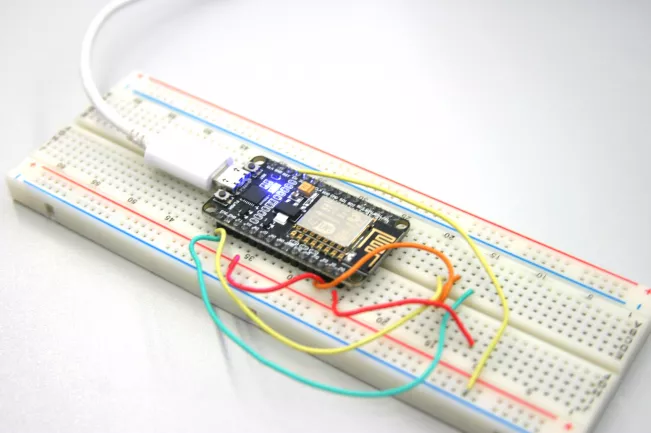
H-BRS: You recently appeared in the ARD's Tagesthemen show, where you were discussing security issues relating to the so-called Internet of Things: is that among the things you address in the Cyber Security Learning Lab?
Jonas: That's a really important topic. With the Internet of Things, society is currently setting itself up for major problems in the future. If the components are manufactured in a cheap and rapid manner then they’ll be used by many people, which will cause major problems sooner or later.
H-BRS: Are there plans to present a degree course in IT security or just a series of teaching events in the context of existing courses?
Jonas: Let's put it this way: we're planning both. We do, of course, already cover security issues in our existing courses. Within the IT Faculty, we're already having discussions about creating a degree course in IT Security, but, the main reason for doing so would really be the marketing aspect. You can already do a lot in terms of IT security in our existing IT courses, but that doesn't really come across externally, because, to us, we “just” study IT.
But, it's still early days: we're discussing it, but not yet in concrete terms.
H-BRS: How long is the collaboration with the Fraunhofer FKIE set to continue? What is planned after that finishes?
Jonas: We started with a specific project with funding for three years, but we’d like the collaboration to continue on a permanent basis. We're currently preparing a joint appointment for a professorship in IT security at H-BRS, which will be funded by the Fraunhofer Society. That's just one building block aimed at perpetuating our collaboration in the field of IT security. The teaching lab is an important component, but there could be other collaboration projects.
We're also planning to collaborate with the Economics Faculty, whereby we need to gain a better understanding of the requirement. At the start we were spurred on by technical enthusiasm, but never quite addressed the question: “who is the actual customer?” We want a better understanding of that. We want to establish ourselves in the small and medium-sized business sector in the Bonn-Rhein-Sieg Region. That's a target group we want to aim for in the medium term.
I can imagine many other things in the context of our collaboration with the Fraunhofer FKIE, such as a staff exchange placement scheme, or offering joint doctorates with the University of Bonn - after all, the Head of the Fraunhofer FKIE holds a professorship at the University of Bonn. There will certainly be further opportunities to intensify our collaboration and, ultimately, to enhance our research profile at H-BRS. We also intend to offer the basic elements of the teaching lab as a series of online training courses.
H-BRS: Thank you for the informative interview Professor Jonas.